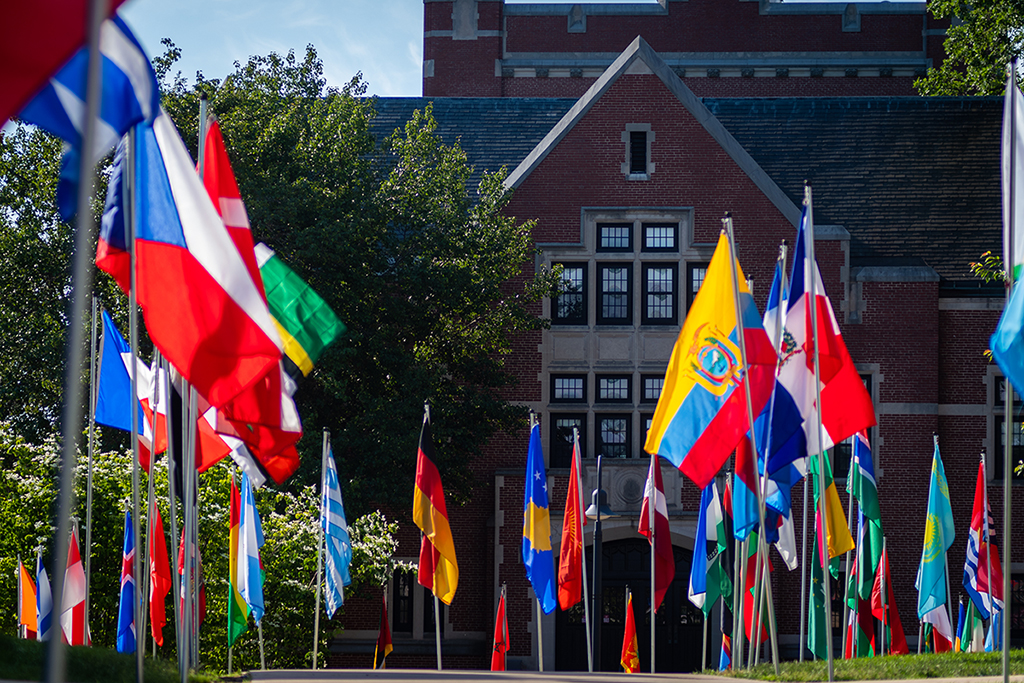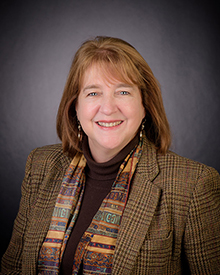Clark to celebrate International Education Week, Nov. 15–19

Clark University will observe International Education Week, Nov. 15-19, with a series of panels, presentations, and social gatherings that celebrate Clark’s rich heritage of global engagement.
“Clark has traditionally embraced the power and the wonder of being a truly global community, one that appreciates international perspectives and experiences as meaningful expressions of our liberal education values,” Provost Sebastián Royo said in a message to the Clark community. “I’m privileged to watch our international students thrive and learn, and our global scholars bring new knowledge and fresh outlooks to our academic table.”
Story continues after video
On Monday, Nov. 15, Clark will welcome Mary Thompson-Jones, professor at the U.S. Naval War College, career diplomat, and author, who will deliver the plenary address, “Study Abroad: Where to Next?” The question in the title leads to an answer that may surprise you: the Arctic.
Thompson-Jones encourages students to consider pushing the boundaries of the typical study abroad experience with travel and research experiences in the Arctic and other nontraditional destinations. The aim, she says, is for students to shape their study abroad excursions around global issues and the regions they impact rather than to limit themselves to traditional nation-state boundaries.
“Tomorrow’s student is less likely to say, ‘I’m studying abroad in China, Canada, or Ghana,’” she notes. “Instead, they’ll be saying, ‘I’m studying water-poor regions, deforested regions, or marine pollution.’”

The Arctic, Thompson-Jones says — which is suffering the severe effects of climate change — is a clear example of an issues-oriented destination. She will speak about several opportunities for students to study there, including within a network of universities, colleges, and research institutes offering education and research options through the University of the Arctic.
She’s quick to point out that studying in the Arctic is not just for those interested in hard-core climate science. Opportunities abound for students to engage in ethnographic and anthropological studies, and to investigate indigenous language and literature, the impact of business and industry in the region, and the multinational political ramifications resulting from greater access to the Arctic because of rapidly melting ice cover. “I have stories that may inspire Clark students,” she says.
Thompson-Jones will present “Study Abroad: Where to Next?” at 6 p.m. in Jefferson 320.
The week’s events will include sessions on the culture of international business, global peace, and the importance of international research, among other topics. A Taste of the World Festival will offer samples of international cuisine in Tilton Hall from 1:30 to 4 p.m. on Thursday, Nov.18.
“Though Clark is intimate in size, our reach is long — touching every point on our shared planet,” Royo said in his message to campus. “As we struggle with the tremendous challenges confronting every nation, from climate change to COVID, it’s never been clearer that we must marshal our many insights and raise our collective voice if we are ever to find effective approaches and compassionate solutions for all. Together, the members of our learning community, from their boundless points of origin, will continue to be critical contributors to a better world.”


